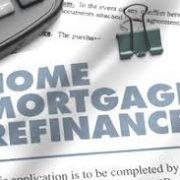Ideally, traditional mortgage lenders want new home buyers to have a 20% down payment when purchasing a new home. Thus, if purchasing a $200,000 home, you should be prepared to have $40,000 as a down payment.
Unfortunately, many people do not have this kind of money lying around. For this matter, Mortgage insurance (MI), known as Lenders Mortgage Insurance ( LMI) was created as a way for mortgage companies to recoup their money if a homeowner defaults on the loan. There are various loans available to assist people with down payments. In some instances, homeowners can obtain 100% financing, and avoid LMI.
What is LENDERS MORTGAGE INSURANCE?
Because Australians are earning less money, and home prices are steadily increasing, the majority of the population is unable to save the recommended down payment of 20%. In order to make owning a home possible, mortgage companies created a particular mortgage insurance, (LMI), for people with less than 20% to put down on a home. This insurance protects the lender if you default on the mortgage.
How to Avoid Paying Lenders Mortgage Insurance?
On average, LMI may increase your mortgage payment by $100 – sometimes less, sometimes more. However, there are ways to avoid paying this additional insurance. The obvious involves having at least 20% as a down payment. If this is not an option, homeowner may agree to a higher interest rate. Another tactic entails getting approved for 100% financing.
How Does 100% Mortgage Financing Work?
100% mortgage financing makes it possible to buy a home with no money down. Also referred to as a piggyback loan or 80/20 mortgage loan, 100% mortgage financing involves obtaining a first mortgage for 80% of the home cost, and a second mortgage, or home equity loan, for 20% of the home cost. Together, the first and second mortgage allows a home purchase with no money down, and no lender mortgage insurance.
A recent report from the International Monetary Fund (IMF) warns of world-wide economic downturn – but the Government and two leading property experts weigh in on what waits ahead for the Australian property market – and it seems we may not face the brunt as prices are expected to take a steady ride up.
Whilst widespread debt, trade wars and economic dips in parts of Europe are listed as major factors at play for the IMF diminishing economic growth forecasts, locally felt struggles in Australia have come about from the drought, housing market decline and credit crackdown.
However, the IMF report and national shadows have not shaken the Federal Government, encapsulated in a speech delivered by Treasurer Josh Frydenberg, which assured Aussies they will not bear the brunt.
“Our economic plan with its focus on growth, productivity, and aspiration and budget repair, takes on an even greater significance as we navigate the currents ahead,” the Treasurer said, also stressing that if the Australian economy was to continue in strength, confidence had to be returned to the housing market.
But where do such hopes leave the housing market amidst dropping property values and tightened lending laws? Despite growing concerns, industry experts say it’s going to be on the up.
‘After a tumultuous 12 months for Australia’s property markets, 2019 looks likely to be a year of greater stability,’ says Domain economist Trent Wiltshire in a recent report – in which he reveals the market will continue to experience a softened dip over the next six months, before gearing up again ‘into another moderate growth phase’.
‘Solid population growth, low unemployment and low interest rates will underpin Australian property price growth in the medium term. More restrictive lending conditions will continue to weigh on prices in the immediate future. But eventually, borrowers will begin to adjust to this new normal,’ the Domain economist says.
A norm that sees Aussies adjusting to, and better understanding how much they are entitled to borrow and the length of time it can take to get a loan, both of which Wiltshire believes will lead to an increase in borrowing – also ‘at a modest pace’.
When broken down in Wiltshire’s report, combined Australian house prices, which sat at an estimated -6% in 2018, are predicted to climb to 1% this year, before reaching 4% in 2020.
Even more growth is expected to occur with unit prices across the country, forecast to climb from -3% to 2%, then 3% in 2020. Property prices have been on a decline since 2017, and although having snowballed, stricter lending laws should be accounted for but a fraction of the cause.
‘Falling sentiment has a reinforcing effect on prices: as prices fall, buyers become more hesitant, further pushing down prices … Another factor at play is that lots of new housing hit the market after a high rate of new construction in the previous couple of years,’ Wiltshire says.
He also invites us to reflect on the upcoming Federal election, which could harm property prices, especially if the Labor party is to be voted into power. Wiltshire expresses concern over the party reducing the capital gains tax discount from 50% to 25% if they pull through, likely to be enforced by 2020 – leading to fewer investors being inclined to put their capitals into the property playfield. A leading real estate CEO weighs in on similar sentiments.
“Uncertainty about changes in policy, such as Labor’s proposal to limit negative gearing tax breaks to new investments, and halve the capital gains tax, will cause an extended period of stagnation,” says CEO of Starr Partners Douglas Driscoll in his market forecast for the year ahead.
In referring to the Federal Government’s challenges to adhere to the banking royal commission’s recommendations as a “balancing act” – for Government still also needs to “ensure that people are able to easily access credit” – Driscoll warns that careful attention needs to be paid to the banks for their potential to “low ball buyers on valuations”.
“Anyone who is struggling to secure lending should contest the valuation. It is possible to request a second opinion, or alternatively, provide extensive comparative evidence for similar properties that have sold in the area,” he advises. Driscoll also delivers good news to property owners.
Those paying down mortgages should take advantage of Australia’s record low interest rates, which Driscoll says will continue to remain low into the first part of this year, and thus be of advantage to mortgage holders in the long run especially if they are willing to dig into their disposable incomes.
“It is advisable that homeowners pay down as much debt as they can while we have this advantageous environment,” Driscoll says. “Paying an additional $150 a month on a $600,000 loan could save a homeowner more than $10,000.”
Auctions have never been an Aussie’s favourite thing to do on a weekend, and according to Driscoll, many will be “too embarrassed” to put their properties under the hammer, largely due to auction clearance rates sitting at around the 50% mark. But he has faith, reminding sellers they “need to trust the auction process and know that several properties also sell before and after the actual auction day”.
Getting a house of your own is a lifetime achievement and a home mortgage helps you in achieving this milestone much earlier than it would otherwise have been possible. In fact, the first home mortgage is also filled with a lot of emotion. A home mortgage is really something that makes dreams come true.
So let us start with understanding what a home mortgage actually is?
A home mortgage is something that allows you to buy a house even if you do not have enough money to pay for it right away. This is made possible by borrowing money from someone and paying it back in monthly instalments. The person who lends you money is called the home mortgage lender. The home mortgage lender lends you money for a specific period (up to 30 years) during which you are expected to pay back the money in monthly instalments. There are certain terms and conditions associated with the home mortgage agreement and these terms and conditions govern the home mortgage throughout its tenure. Among others, the most important thing is the interest rate that the home mortgage lender charges you. Interest charges are the means through which the mortgage lenders earns on this financial transaction called home mortgage. Most home mortgage lenders offer various home mortgage schemes/options. The most important variation in these schemes is in terms of the interest rate and the calculations related to it. In fact, most home mortgage options are named after the type of interest rate used for that option. Broadly speaking, there are two types of home mortgage interest rates – FRM (fixed rate mortgage) and ARM (adjustable rate mortgage). For FRM, the interest rate is fixed for the entire tenure of the home mortgage loan. For ARM, as the name suggests the home mortgage rate changes or adjusts throughout the tenure of the home mortgage. This change or adjustment of mortgage rates is based on a pre-selected financial index like treasury security (and on the terms and conditions agreed between you and the mortgage lender). That is how mortgage works.
No matter what type of home mortgage you go for, you always need to pay back the entire home mortgage loan (with interest) to the mortgage lender. Failing to pay back the mortgage lender can result in foreclosure on your home and the mortgage lender can even auction it off to recover the remaining debt.
Therefore, home mortgage is a wonderful means of getting into your dream home much earlier in your life. Without this concept, you would have to wait for a long time for getting into that dream home. Really, a home mortgage is one of the best concepts from the world of finance.
If there is anything that can prove the impact of stricter lending rules by lenders in Australia, it would be the latest data on home-loan rejections.
According to Digital Finance Analytics (DFA), 40% of home-loan applications were rejected in December due to non-compliance with existing lending standards.
While this is a drop from the previous month’s 48% rejection rate, it is still significantly higher than last year’s 8%. It is important to note that the volume of applications across all segments leading up to the holiday season has decreased and that many households have filed multiple home-loan applications.
“The fall in investor applications is significant, as appetite for investment property eases. The relative volume of refinance applications remained quite high, as people are seeking to reduce their monthly repayments,” DFA principal Martin North said.
Compared to authorised deposit-taking institutions (ADIs), non-banks recorded lower rejection rates at 20%.
North expects the number of rejections to remain prominent this month as the number of loan applications continues to grow.
For investors, he suggested watching the availability of credit, as moderation of loan offerings could result in a price decline of up to 30%.
“As credit drives home prices higher, so the reduced availability of credit drives prices lower. Our own view is a fall of 20%-30% peak-to-trough over the next two to three years,” North said, adding that the fall could worsen if global uncertainties are factored in.
Finance can be the most important thing for anyone with dreams to fly in his eyes. Today our world runs on finance. The forms may be different but the purpose is the same, to cater to our needs. When we fail to cater our needs due to lack of enough funds within our resources, we look outside for them in form of loans. One such way of funding our desires is secured home loans.
A secured home loan is secured by your home as security. These loan are like any secured loan and can be used for any of you personal purpose. The advantages of such loans are following:
• Interest rate is low as the loan amount is secured.
• Repayment is spread over a longer periods resulting in smaller monthly payments.
• Flexible terms and conditions for loans.
• Higher rate of approval of loans ensure you that you will be getting the loan approved easily.
• Online option is there to choose and apply easily
• Reduced paper work
• Faster approval once your property is valued.
• Multipurpose loans (can be used for debt consolidation, medical expenses, education, buying a car, boat, vacation, home improvement etc)
• People with bad credit history can also apply.
• You can borrow up to 125% of your collateral value.
Secured home loans come in various flavors to choose from:
• Fixed loans – the interest rate will remain fixed under this for the whole repayment term.
• Variable loans – rate of interest will fluctuate according to interest rates in the market.
• Capped loans – a limit is set up to which your interest rate can rise with rise in interest rate in the market.
You can decide among these according to which rate suits you the best.
A secured home loan allows you to borrow amount ranging between $30,000 to $100,000 on the basis of equity in your home. Equity is the market value of your home less any debts taken against it.
Shopping for a right loan lender is one thing which every borrower must do before applying. There are lot many lenders in the market with different rates and terms.
It happens may time that you came to know about a low rate package after you have already applied for the loan. So to avoid this do proper research, visit lenders offices and study their quotes. Your hard work can help you find out the best secured loan out of the rest.
TRUSTED MORTGAGE BROKER AUSTRALIA
PROFESSIONAL REAL ESTATE AGENTS KENWICK
PREMIER CLEANING COMPANY IN PERTH






